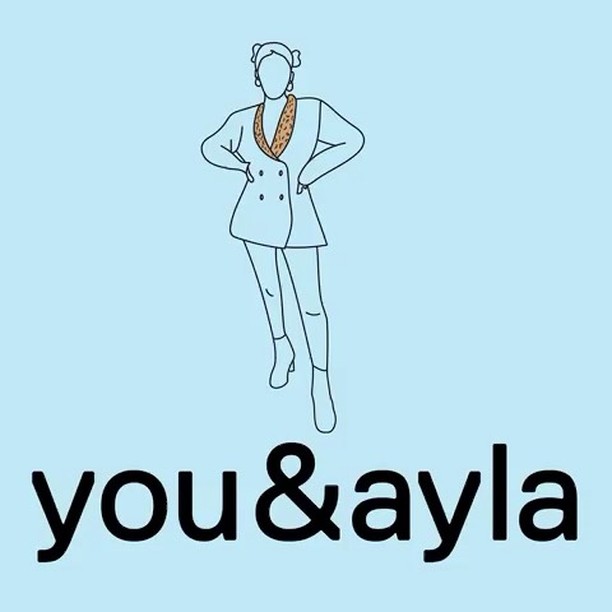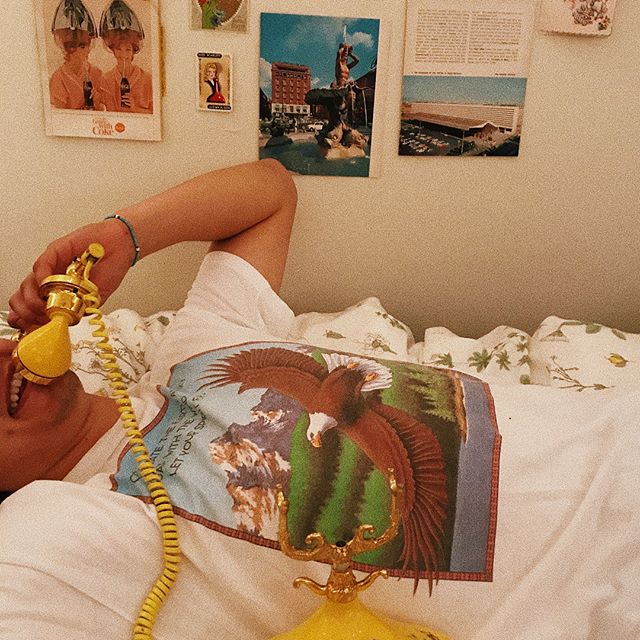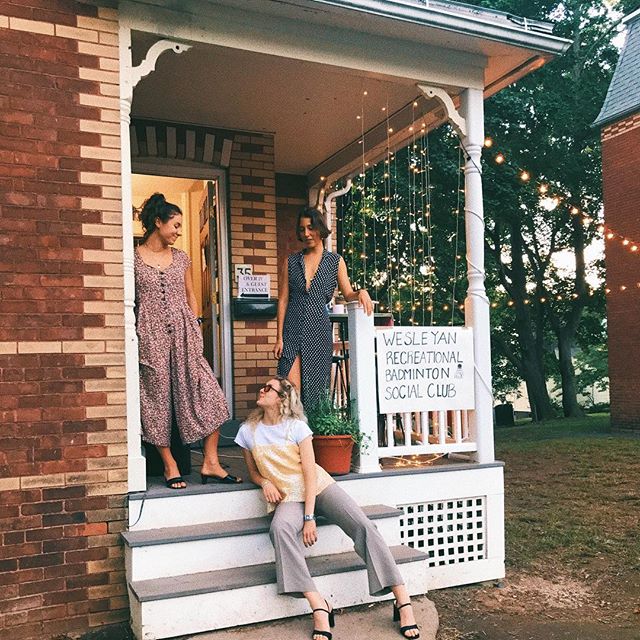Vienna Kaylan ’19 has filled a void at the University, bringing affordable and trendy vintage clothes to campus with a series of pop-up shops. Her brand, You and Ayla (@you.and.ayla), sells a collection of vintage items hand-picked and curated by Kaylan over a number of years. The Argus recently sat down with her to discuss the success of her business, the future of the brand, and advice she has for other young entrepreneurs.
The Argus: Why don’t you start by telling me a little bit about your business.

Vienna Kaylan: I have a business called You and Ayla, which is a vintage clothing company of pieces that I’ve sourced and collected from across the U.S. We fix up and re-sell at a really affordable price, to really focus on a sustainable clothing option that is also affordable for people at Wesleyan. I feel like when I think of sustainable clothing options now, they are always really expensive, and there is a lot of online shopping at Wesleyan that accumulates a lot of waste. I’m obsessed with clothing and styling, so I just kind of wanted to bring that to campus and share it with people, and price it at a point where everyone could participate in both being sustainable and feeling stylish and beautiful.
A: When did it start?
VK: I started it over the summer. I’ve been collecting pieces since I got back from abroad last fall, but I started selling this year at Wesleyan in the fall. It’s me, and [grad student] JR Bascombe helps me. He helps with the business side, and my friends help, whether it’s lending me a car to come down to Usdan to sell there, or just really showing support and advertising it. It’s been a community effort which has been really fun.
A: Have you seen a lot of success at Wesleyan?
VK: Definitely. It’s interesting how accessibility is really helpful at Wesleyan. Being able to walk through Usdan and find stuff has been really great for people, and it’s something that I know I love, like when I walk through clothing being sold at Usdan, I love that. I love not having to go off campus to look for stuff. We’ve seen a lot of people buy a lot of things at once, which is really exciting, and transitioning from seasons being able to price really warm jackets really well, and see people stock up and bring themselves into the next season has also been really special. Every single piece I’ve picked out myself, and would wear myself, and adore, so it’s really cool to see people wearing them around campus. That’s been really, really rewarding.

A: Where do you get the clothing?
VK: A lot of the stuff I’ve been collecting from my mom for years and years, since she’s a huge fashion junkie. A lot of the stuff is from vintage shops across the Midwest. I did a trip there over the summer, which was so much fun. A lot of my friends from home donate really beautiful pieces that they don’t have space for in their closets anymore. Some stuff I got abroad and brought back, from London, and a lot of old family pieces I’ve collected. It’s been a process of me collecting pieces for years, that [don’t] all fit me or anything like that.
A: Where do you keep all of these pieces?
VK: We store a lot of stuff on Brainerd, where my friend has an apartment.
A: Do you want to continue this after you graduate?
VK: Yeah, definitely! I want to do it in New York, and I want to do deliveries. I’m always thinking about how to minimize, because I know the weight that e-commerce does have in terms of generating waste. I’m not super educated on the ways that you can minimize that, but I do want to sell online and figure out a delivery system, or just start traditional e-commerce and figure out how to reduce waste from a traditional e-commerce kind of bracket. I do want it to live on after Wesleyan. I want it to continue to be a resource for really cute pieces that you know you’re going to get at a good price, and that you know are going to be really good quality. I want to be a first-stop shop for people if they’re thinking about adding another really beautiful piece to their collection. I also want to be an alternative to going to these fast-fashion marketplaces, like Zara or Urban Outfitters. There, you are finding something really cute that’s like $70, but you can’t even begin to trace the train of production. I would love to continue to be a one-stop shop where people can buy really well-priced and sustainably sourced clothing.
A: How many pop-up shops have you done at Wesleyan?

VK: I’ve done four or five, and we’ve done them outside and inside of Usdan. They’ve all been really fun, and getting to talk to people is so nice. I am hoping to do one more before school ends, but it’s a really big endeavor getting everything out and set up. Also, my last semester is so swamped, so I’m not sure. People come and look through the stuff all the time though, which is nice, so people can always come and take stuff. I hope to keep it kind of alive as a resource if anyone does want anything.
A: Any advice you’d give to anyone who’s trying to break into this type of work?
VK: Totally. I think just really think about how you can bring value to people, whether that’s being affordable or presenting another option to engaging in the fast-fashion market. Think about what is really important to you. I think the most important thing to me is selling pieces that I’m really passionate about, and that I really love, and that I know other people would love. Also, being an affordable resource. I don’t know a ton logistically [about] how sustainability and fashion interact, but I know that presenting people with another option to ordering online is a good first step, and that’s important to me. Think about what you could feasibly get done when you’re at Wesleyan and how you can make that happen.
Kaye Dyja can be reached at kdyja@wesleyan.edu.
Jane Herz can be reached at jherz@wesleyan.edu.



Leave a Reply